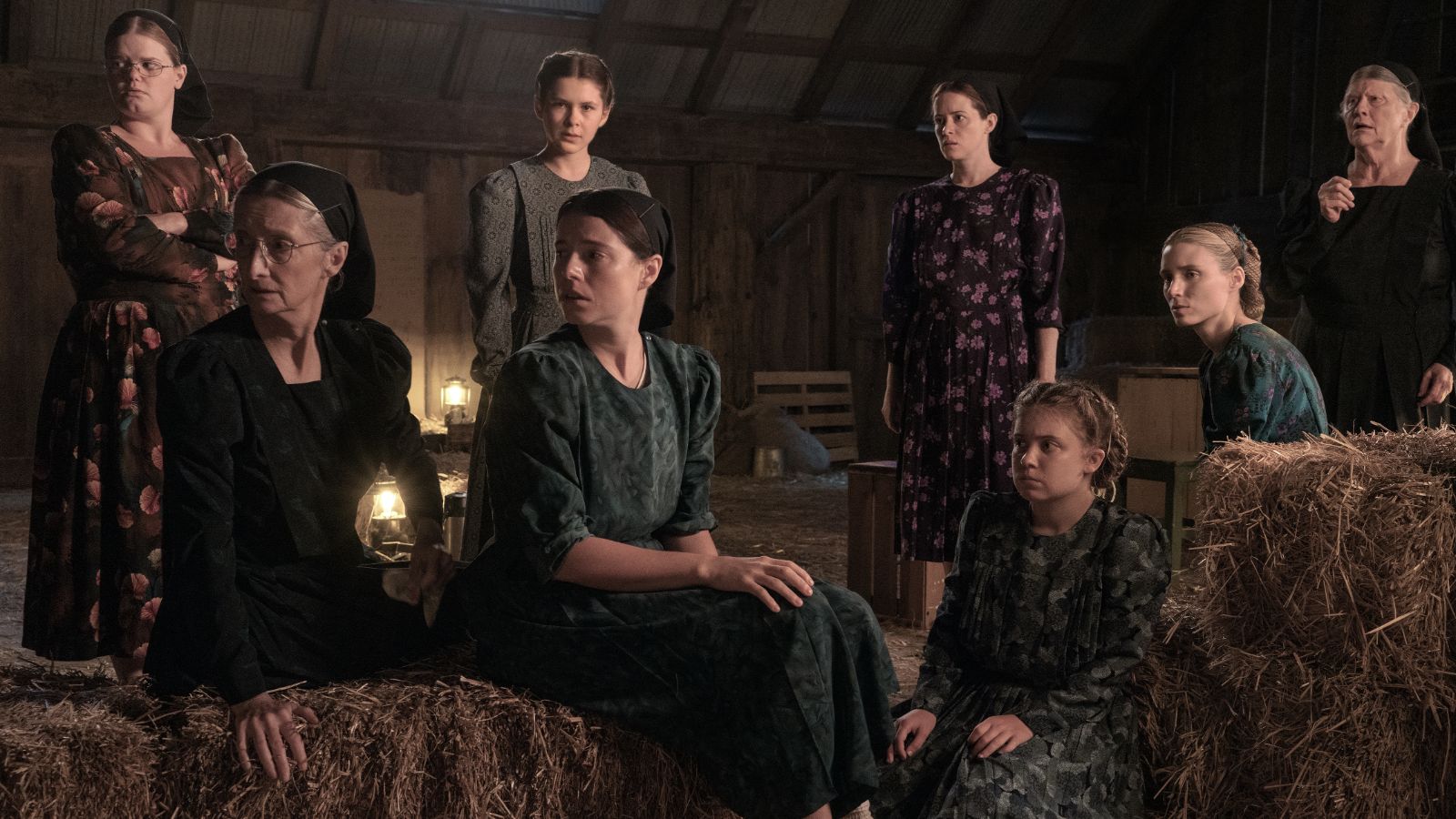With Women Talking, Sarah Polley adapts Miriam Toews’ 2018 novel in a way that feels like a response to the last several years. The book, which concerns women in a Mennonite colony deciding whether to leave their community and the men who spent years assaulting and raping them, published after the downfall of Harvey Weinstein and the formation of the #MeToo movement, which made its subject and themes reverberate around topics that were, and still are, at the forefront of media and public discourse. Polley leans hard into the bigger ideas, making her film less of a chamber piece and more a fumbled commentary on where we are now. Schematic in its intent and pedestrian in its execution, Women Talking is a well-meaning drama that’s obvious in all the wrong ways.
Women Talking largely takes place in the hayloft of the village’s barn, where two families of women gather to break a tie vote between staying and fighting or packing their things and leaving. There’s Agata (Judith Ivey) and her daughters Ona (Rooney Mara) and Salome (Claire Foy); Greta (Sheila McCarthy) and her daughters Mariche (Jessie Buckley) and Mejal (Michelle McLeod); and schoolteacher August (Ben Whishaw), who takes the minutes since he can read, write, and is also one of the only men the women don’t feel threatened by. Other characters, like the teenage daughters of both clans, also participate, but mostly as sources of levity between some heavier moments.
In its politics and overall messaging, Women Talking is unimpeachable. The humanist approach of Polley’s screenplay quickly points out the dynamics of the patriarchal systems that oppress these women, the way said systems and their methods get passed from one generation to the next, and how solidarity and hope can pave the way to a bright (if uncertain) future. If these points are all well and fine, a film should aspire to elicit more than nods of agreement. When Polley underlines every single point with the broadest of strokes, any investment or immersion into the story gets wiped out by the bigger picture. Characters operate more like mouthpieces for common perspectives on debates over gender equality; Salome embodies righteous fury, Mariche wants the path of least resistance, Ona takes on the role of the intellectual, and Agata and Greta are the wise elders whose inputs guide everyone to their final decision. Every moment exists alongside the machinations behind it, which makes Women Talking more like a case of bad reverse-engineering than effective metaphor or allegory.
Polley’s direction is even more disappointing after a strong track record established by Away From Her and Take This Waltz. Maybe it’s from working with a larger ensemble in a single location, but images feel more driven by coverage and function than anything else. Most conversations have the camera plunked down with each character front and center, cutting from one to the next with a slow zoom thrown in every now and then when someone has a monologue. (It says something when the film devolves into a guessing game of which part will end up getting airtime on awards shows.) We’re lucky a cast this talented can bring more to the table, but the nature of these characters and how they’re constructed mean they can only do so much. While Foy’s rage-fueled performance gets the big moments, the standouts are Ivey and McCarthy, whose stoicism doubles as a veneer for the decades of abuse they’ve endured that eventually cracks as the discussions carry on through the night.
Also notable is Whishaw, though the amount of depth and sensitivity he brings to his role is almost in direct opposition to how Polley writes him as the ultimate ally; a moment where Mariche says “not all men” before the score swells and Polley cuts to Whishaw is downright laughable. However easy it is to admire Polley’s efforts to provide an example of the solidarity and courage it takes to build a better world, that alone doesn’t equate to good filmmaking. Women Talking doesn’t meet the moment so much as show up for it.
Women Talking screened at the Toronto International Film Festival and opens on December 2.

